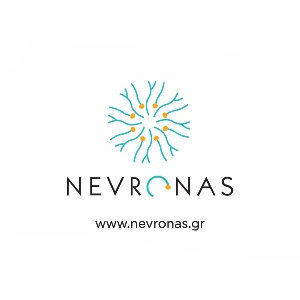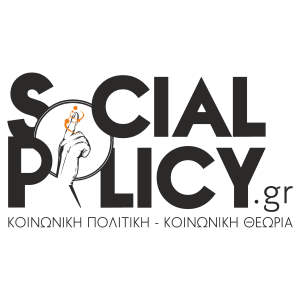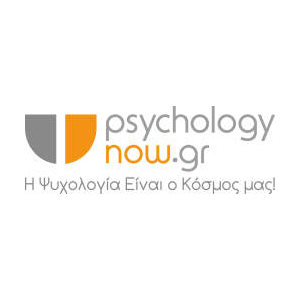Βραβείο 2021

Βραβείο 2022

Στρατηγικός συνεργάτης

Υποστηρικτές Επικοινωνίας


Open access article: (https://pubmed.ncbi.nlm.nih.gov/35532041/ )
Abstract
Background: Social interaction and social communication are among the central areas of difficulty for autistic people. Music therapy uses music experiences and the relationships that develop through them to enable communication and expression, thus attempting to address some of the core problems of autistic people. Music therapy has been applied in autism since the early 1950s, but its availability to autistic individuals varies across countries and settings. The application of music therapy requires specialised academic and clinical training which enables therapists to tailor the intervention to the specific needs of the individual. The present version of this review on music therapy for autistic people is an update of the previous Cochrane review update published in 2014 (following the original Cochrane review published in 2006).
Objectives: To review the effects of music therapy, or music therapy added to standard care, for autistic people.
Search methods: In August 2021, we searched CENTRAL, MEDLINE, Embase, eleven other databases and two trials registers. We also ran citation searches, checked reference lists, and contacted study authors to identify additional studies.
Selection criteria: All randomised controlled trials (RCTs), quasi-randomised trials and controlled clinical trials comparing music therapy (or music therapy alongside standard care) to 'placebo' therapy, no treatment, or standard care for people with a diagnosis of autism spectrum disorder were considered for inclusion.
Data collection and analysis: We used standard Cochrane methodological procedures. Four authors independently selected studies and extracted data from all included studies. We synthesised the results of included studies in meta-analyses. Four authors independently assessed risk of bias (RoB) of each included study using the original RoB tool as well as the certainty of evidence using GRADE. MAIN RESULTS: We included 16 new studies in this update which brought the total number of included studies to 26 (1165 participants). These studies examined the short- and medium-term effect of music therapy (intervention duration: three days to eight months) for autistic people in individual or group settings. More than half of the studies were conducted in North America or Asia. Twenty-one studies included children aged from two to 12 years. Five studies included children and adolescents, and/or young adults. Severity levels, language skills, and cognition were widely variable across studies. Measured immediately post-intervention, music therapy compared with 'placebo' therapy or standard care was more likely to positively effect global improvement (risk ratio (RR) 1.22, 95% confidence interval (CI) 1.06 to 1.40; 8 studies, 583 participants; moderate-certainty evidence; number needed to treat for an additional beneficial outcome (NNTB) = 11 for low-risk population, 95% CI 6 to 39; NNTB = 6 for high-risk population, 95% CI 3 to 21) and to slightly increase quality of life (SMD 0.28, 95% CI 0.06 to 0.49; 3 RCTs, 340 participants; moderate-certainty evidence, small to medium effect size). In addition, music therapy probably results in a large reduction in total autism symptom severity (SMD -0.83, 95% CI -1.41 to -0.24; 9 studies, 575 participants; moderate-certainty evidence). No clear evidence of a difference between music therapy and comparison groups at immediately post-intervention was found for social interaction (SMD 0.26, 95% CI -0.05 to 0.57, 12 studies, 603 participants; low-certainty evidence); non-verbal communication (SMD 0.26, 95% CI -0.03 to 0.55; 7 RCTs, 192 participants; low-certainty evidence); and verbal communication (SMD 0.30, 95% CI -0.18 to 0.78; 8 studies, 276 participants; very low-certainty evidence). Two studies investigated adverse events with one (36 participants) reporting no adverse events; the other study found no differences between music therapy and standard care immediately post-intervention (RR 1.52, 95% CI 0.39 to 5.94; 1 study, 290 participants; moderate-certainty evidence). AUTHORS' CONCLUSIONS: The findings of this updated review provide evidence that music therapy is probably associated with an increased chance of global improvement for autistic people, likely helps them to improve total autism severity and quality of life, and probably does not increase adverse events immediately after the intervention. The certainty of the evidence was rated as 'moderate' for these four outcomes, meaning that we are moderately confident in the effect estimate. No clear evidence of a difference was found for social interaction, non-verbal communication, and verbal communication measured immediately post-intervention. For these outcomes, the certainty of the evidence was rated as 'low' or 'very low', meaning that the true effect may be substantially different from these results. Compared with earlier versions of this review, the new studies included in this update helped to increase the certainty and applicability of this review's findings through larger sample sizes, extended age groups, longer periods of intervention and inclusion of follow-up assessments, and by predominantly using validated scales measuring generalised behaviour (i.e. behaviour outside of the therapy context). This new evidence is important for autistic individuals and their families as well as for policymakers, service providers and clinicians, to help in decisions around the types and amount of intervention that should be provided and in the planning of resources. The applicability of the findings is still limited to the age groups included in the studies, and no direct conclusions can be drawn about music therapy in autistic individuals above the young adult age. More research using rigorous designs, relevant outcome measures, and longer-term follow-up periods is needed to corroborate these findings and to examine whether the effects of music therapy are enduring.
Citation: Geretsegger M, Fusar-Poli L, Elefant C, Mössler KA, Vitale G, Gold C. Music therapy for autistic people. Cochrane Database Syst Rev. 2022 May 9;5(5):CD004381. doi: 10.1002/14651858.CD004381.pub4. PMID: 35532041; PMCID: PMC9082683.